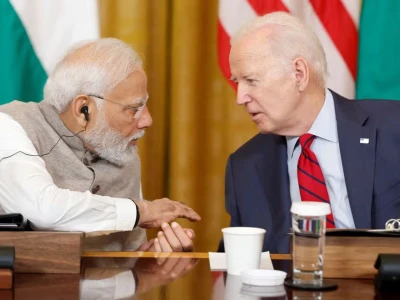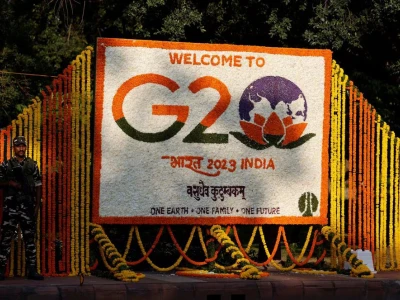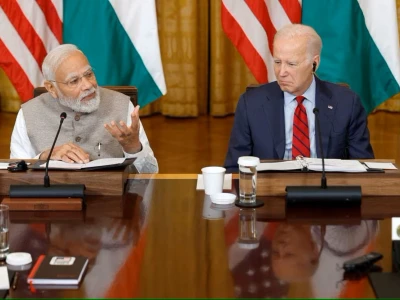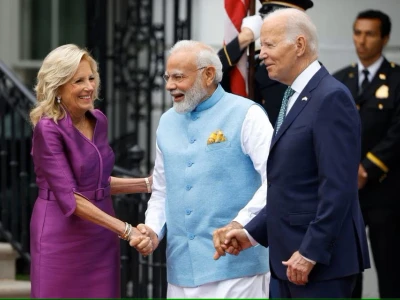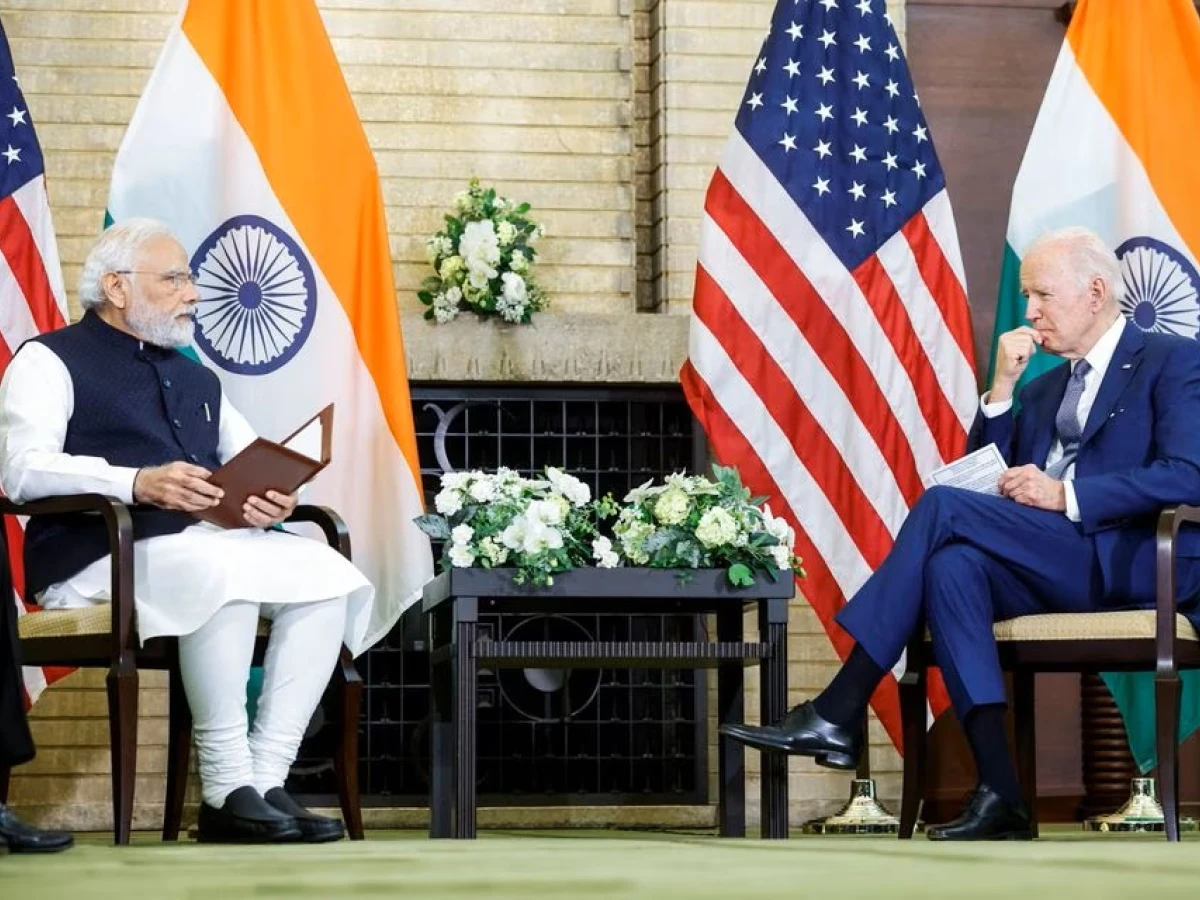
India, U.S. discuss Narendra Modi White House visit
During the visit, the United States and India launched a partnership to deepen ties on military equipment, semiconductors and artificial intelligence.
WASHINGTON, Feb 3 (Reuters) - The Biden administration is in talks with Indian officials over a possible White House visit by Prime Minister Narendra Modi later this year, according to a U.S. official aware of the discussions and another person briefed on the matter.
U.S. President Joe Biden is eager to deepen ties with the world's largest democracy as part of his bid to win what he has framed as a contest between free and autocratic societies, especially China.
The White House and the Indian Embassy in Washington declined to comment.
Dates are not finalized, the sources said. Discussions about a possible White House visit intensified this week as Indian National Security Adviser Ajit Doval met with his U.S. counterpart, Jake Sullivan, and Secretary of State Antony Blinken in Washington.
During the visit, the United States and India launched a partnership to deepen ties on military equipment, semiconductors and artificial intelligence.
New Delhi has frustrated Washington by participating in military exercises with Russia and increasing purchases of the country's crude oil, a key source of funding for the war in Ukraine. Washington has been pushing New Delhi to do more to punish Russia for the Ukraine invasion.
India proposed on Wednesday hiking military spending for the upcoming year by 13% to $72.6 billion as it seeks to add more fighter jets and roads along its tense border with China. India and China share a 2,100-mile (3,400-kilometer) frontier that has been disputed since the 1950s.
The U.S. president is expected to make his own trip to New Delhi in September for the G20 meetings hosted by India.
Biden is also expected to meet with Modi during a mid-year meeting of the Quad countries, which is hosted by Australia and also includes Japan.
Those countries, along with South Korea, are key to Biden's strategy of strengthening regional alliances and shoring up Asian security in the face of threats including China's claims of Taiwan and vast swathes of the South China Sea.
President George W. Bush's administration in 2005 denied Modi a U.S. visa after a 2002 incident where more than 1,000 people, mostly Muslims, were killed in sectarian riots in the Indian state of Gujarat, where he had been chief minister. Modi denied any wrongdoing.
He was first invited to the White House after he became prime minister in 2014 by Barack Obama.
Modi's Bharatiya Janata Party (BJP) won a record-breaking victory in his home state Gujarat in December and is widely expected to win the next general election in 2024.
